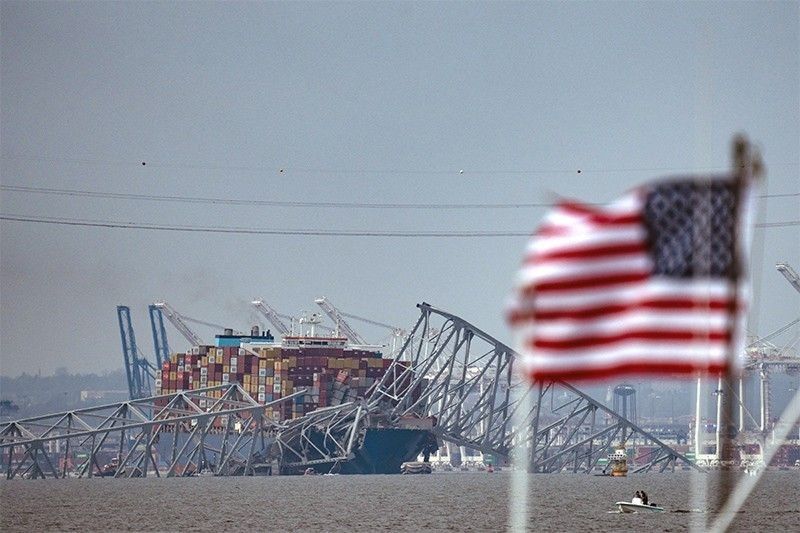Baltimore bridge collapse could lead to delayed shipments, higher shipping costs

MANILA, Philippines — The closure of the Port of Baltimore in the US following the collapse of the Baltimore key bridge is expected to lead to shipment delays and higher shipping costs.
Foreign Buyers Association of the Philippines president Robert Young told The STAR yesterday, the group expects an estimated $150 million worth of apparel exports to the US to be delayed with cargo vessels stranded in the Francis Scott Key Bridge area in Baltimore.
“Our export shipments deliveries to the chain stores and end buyers will have a big delay,” he said.
He said the estimated value of apparel shipments from the Philippines expected to be delayed due to the incident includes those in cargo vessels still in transit.
Last Tuesday, the Francis Scott Key Bridge collapsed after a container ship hit one of the bridge’s pillars, prompting the closure of the Port of Baltimore.
Young said it is uncertain how long before traffic passage will normalize, with Port of Baltimore being the largest US port by volume.
He said cargo ships coming from Southeast Asia including the Philippines are standing still around the port area.
“Hopefully, they (shipments) can still catch up with the season trend of the apparel, otherwise, it will face order cancellation,” he said.
Rizal Commercial Banking Corp. chief economist Michael Ricafort said in an email, the collapse of the Baltimore bridge and closure of the Port of Baltimore could affect the Philippines in terms of shipment delays and higher shipping costs.
He said port traffic in Baltimore, which is one of the busiest ports in the US East Coast, could be diverted to nearby alternative ports in the East Coast such as in New Jersey and Virginia, as well as other ports in the West Coast.
Such may directly and indirectly lead to potential congestion or delay in international trade and supply chains with the US and the rest of the world.
He said this “could potentially have an indirect impact on Philippine external trade (both exports and imports) as well, especially in terms of delays and some increase in shipping costs that could lead to some increase in import prices, on top of the earlier effects of the disruptions in the Red Sea area that led to longer shipping routes and higher shipping costs for the Asia-Europe shipping or trade route.”
He said the collapse of the bridge could lead to some disruptions in global supply chains such as vehicles and parts, with the Port of Baltimore serving as one of the major US ports for American automakers.
He also said the closure of the Port of Baltimore, which is the second largest terminal for exports of US coal, could affect exports to India and indirectly affect other countries around the world.
Oikonomia Advisory and Research Inc. president and chief economist John Paolo Rivera said in an email, the incident would strain supply chains and scramble deliveries along the US East Coast that may diffuse to the international market.
“Since the supply chain has been disrupted again, this will have effects on inflation of countries whose supply is linked to this locale,” he said.
- Latest
- Trending





























